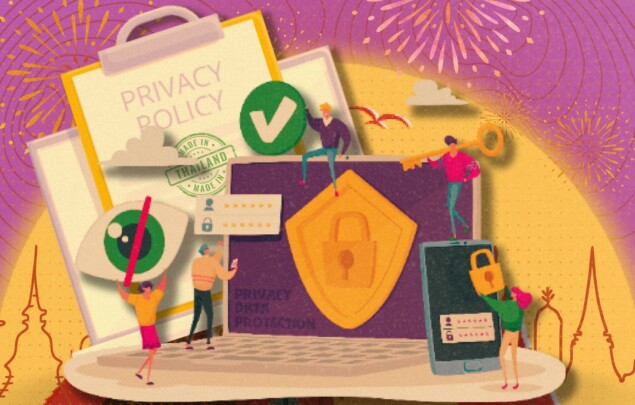A Guide To Thailand’s Personal Data Protection Act (PDPA)
A Guide To Thailand's Personal Data Protection Act (PDPA)

Create a tailored Privacy Policy, Terms & more in under 5 minutes.

As a freelancer, you may be wondering where you fit into the bigger picture of online privacy and data protection legislation. While your one-person business may not handle as much data as a large company, the very nature of your work will necessitate the processing of personal data.
As such, there are a number of privacy concerns and obligations you should be aware of, particularly when it comes to writing your own privacy policy.
Here are some of the key privacy issues that impact freelancers, contractors and other solo business owners.
From project files to client emails, you can be liable for the loss or breach of any client information collected and held by your business. If the GDPR applies to your business, you could also be penalised for failing to comply with strict requirements around the collection and management of personal data (read our earlier blog post on the difference between business and personal data).
To avoid putting yourself or your clients at risk, you should conduct an audit of the types of personal data being collected and how and where it is stored by your business. Data may be spread out across any devices, cloud storage or SaaS apps you may use, each of which may provide access to third parties and have differing levels of data security.
Under the GDPR, you must only collect personal data when necessary and provide a lawful basis for doing so. Your clients should be informed of why this data is being collected, who has access to it and the measures you will take to protect it. For small businesses, the latter can be as simple as encrypting all work devices, regularly backing up data and installing anti-virus and anti-malware software.
Recent privacy laws like the GDPR have taken aim at issues like spam and unwanted online tracking, which have shaken up the way most businesses market themselves online – and freelancers are no exception.
If your website uses cookies or you send out an email newsletter to clients and prospects, the GDPR requires you to get explicit consent prior to doing so and allow them to opt out or unsubscribe at any time.
You will also need to clearly communicate to your subscribers or users how their personal information is being used and what types of communications or content they’ll receive from your business.
Most freelancers follow best practices around data security and password protection, but did you know that using public Wi-Fi could expose you to data theft and malware attacks? Because some shared networks aren’t always encrypted or require a username and password to join, your personal data is at much greater risk of being intercepted by hackers.
Whether you’re digital nomad or like to switch up the home office for your local café, it’s recommended that you set up and browse public Wi-Fi through a virtual private network.
When it comes to organising and communicating your data privacy practices and compliance in a cohesive way, creating a transparent privacy policy is key. Your policy is more than a mere compliance document: it will also provide you with some legal protection should any disputes or breaches arise.
As a solopreneur, compliance doesn’t have to be as complicated or costly as you may think. To help you get started, we offer a range of simple privacy policy templates that can be easily customised for your business. Whether you need a policy for your blog or website terms and conditions, GetTerms has both free and comprehensive packages to suit your needs.
Get a basic privacy policy and Terms of Service with our free privacy policy generator. Generate your policy now.